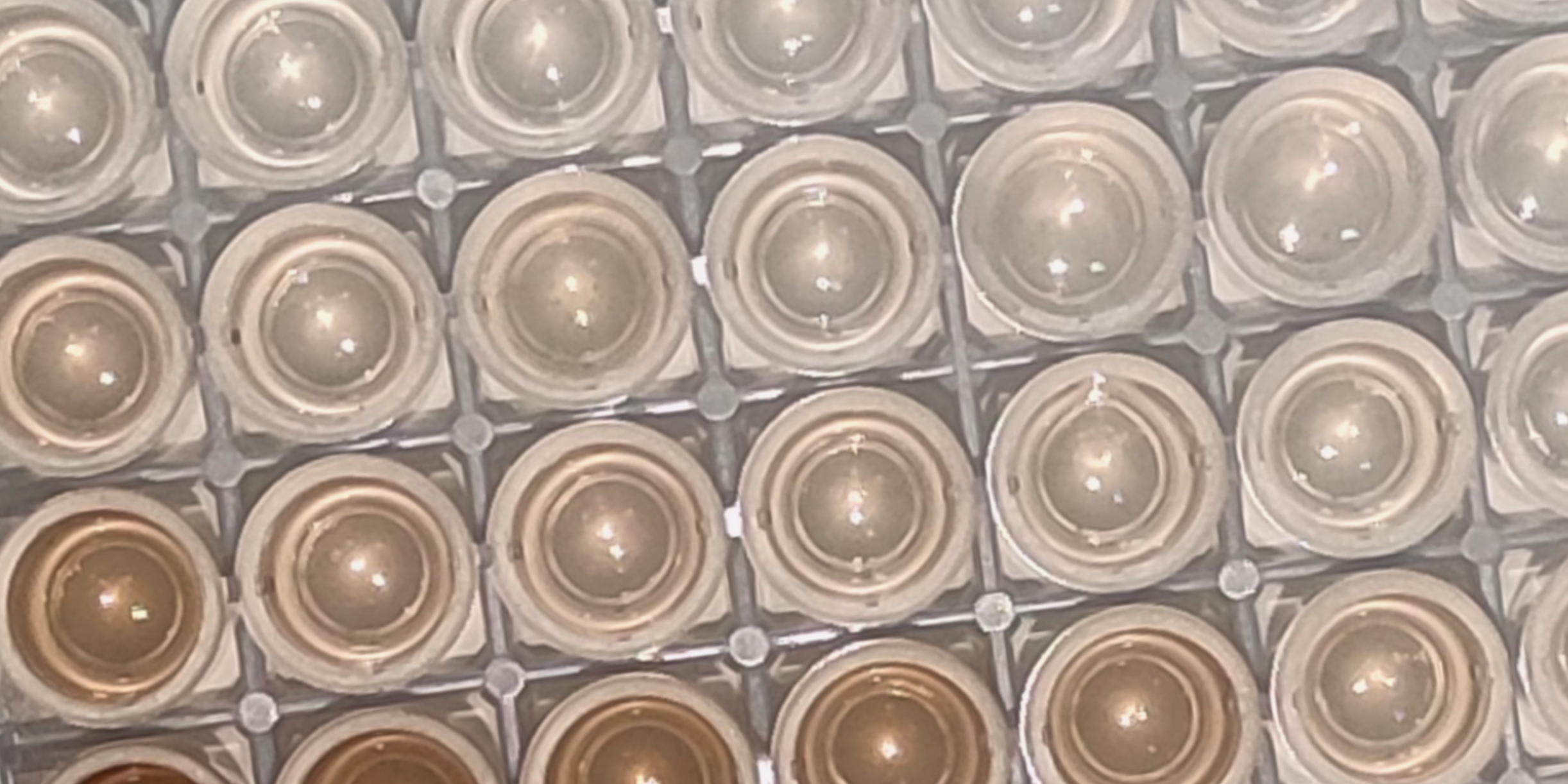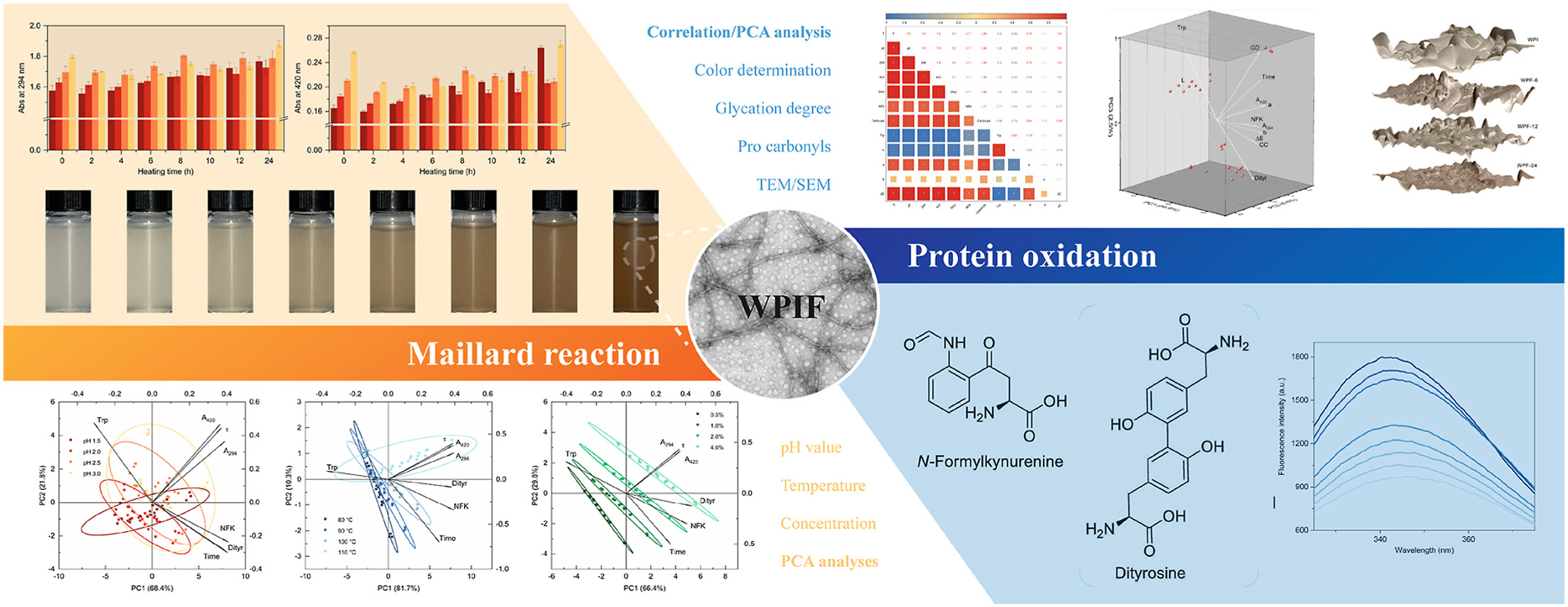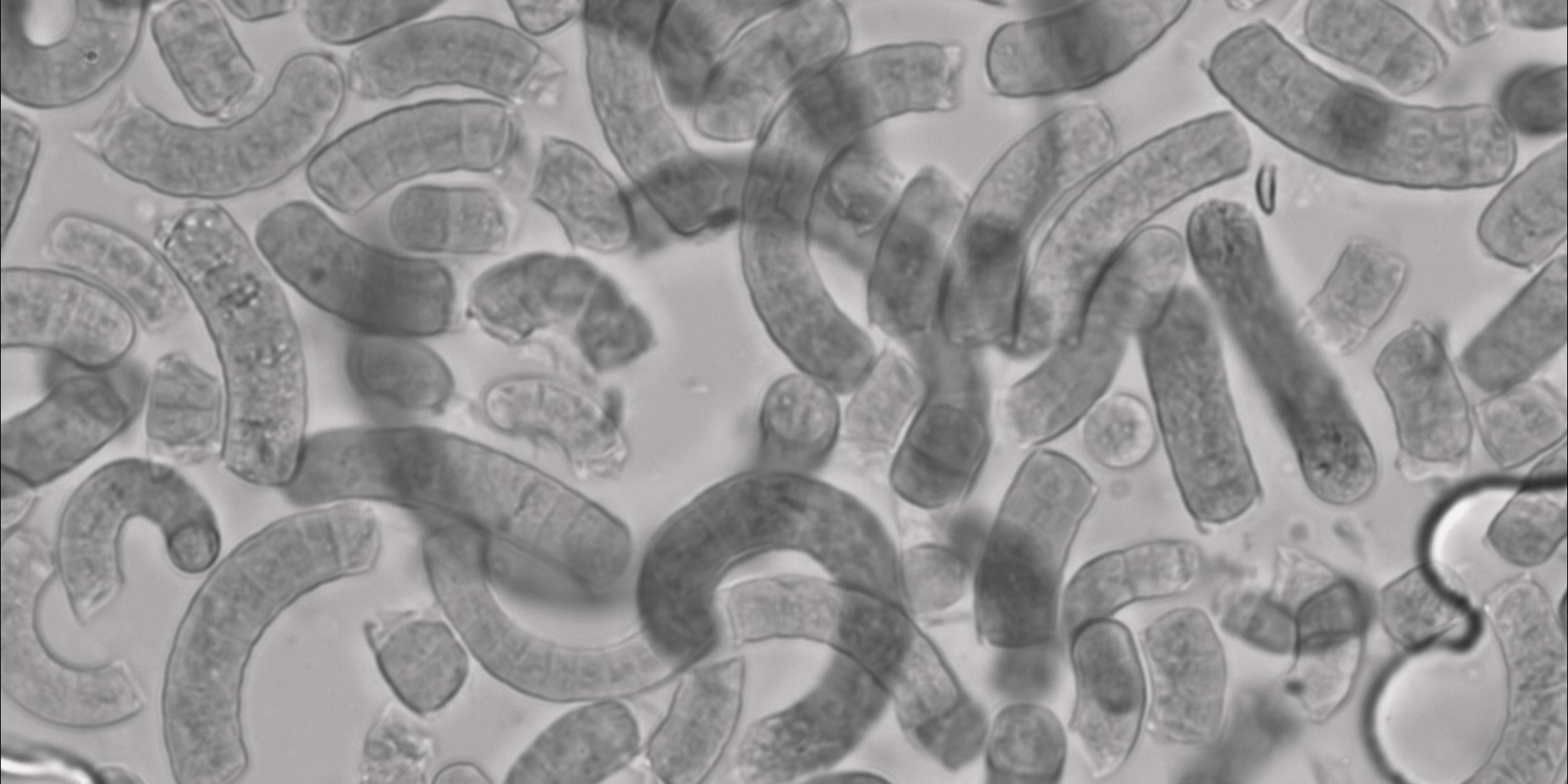1 min to read
Color formation during the fibrillization
The effect of Maillard reaction and protein oxidation.

Although the connection between color formation and protein deterioration reactions such as oxidation and Maillard reaction is well known there is no information on such effects during the fibrillization of whey protein isolate fibrils (WPIF). This study identifies pH, temperature, and protein concentration that affect the deterioration reactions of WPIF during incubation and provides information on how these reactions affect the color formation of WPIF. Dye analysis and far-UV CD spectroscopy illustrated the formation of Cross-β. With continued heating, the unbranching semiflexible fibrils were formed, and the color of the samples deepened. With the rise of pH values, the final Maillard product content tended to be lower after 24 h. The Maillard reaction during fibrillization is temperature dependent (Ea = 133 kJ/mol). Increasing pH, temperature, or protein concentration could intensify protein oxidation during incubation. The carbonyls, N-formylkynurenine, and apparent Dityrosine oxidation increased continuously during 24 h. The principal component analysis and correlation analysis indicated that the color formation during the fibrillization of WPIF was caused by protein oxidation and the Maillard reaction. This study will give insights into protein fibrils prepared by commercial protein.
Graphical Abstract

Find the full text
The full text can be found on the Food Hydrocolloids 2023 Vol. 142 Pages 108819.
Thank you for careful reading.

Comments